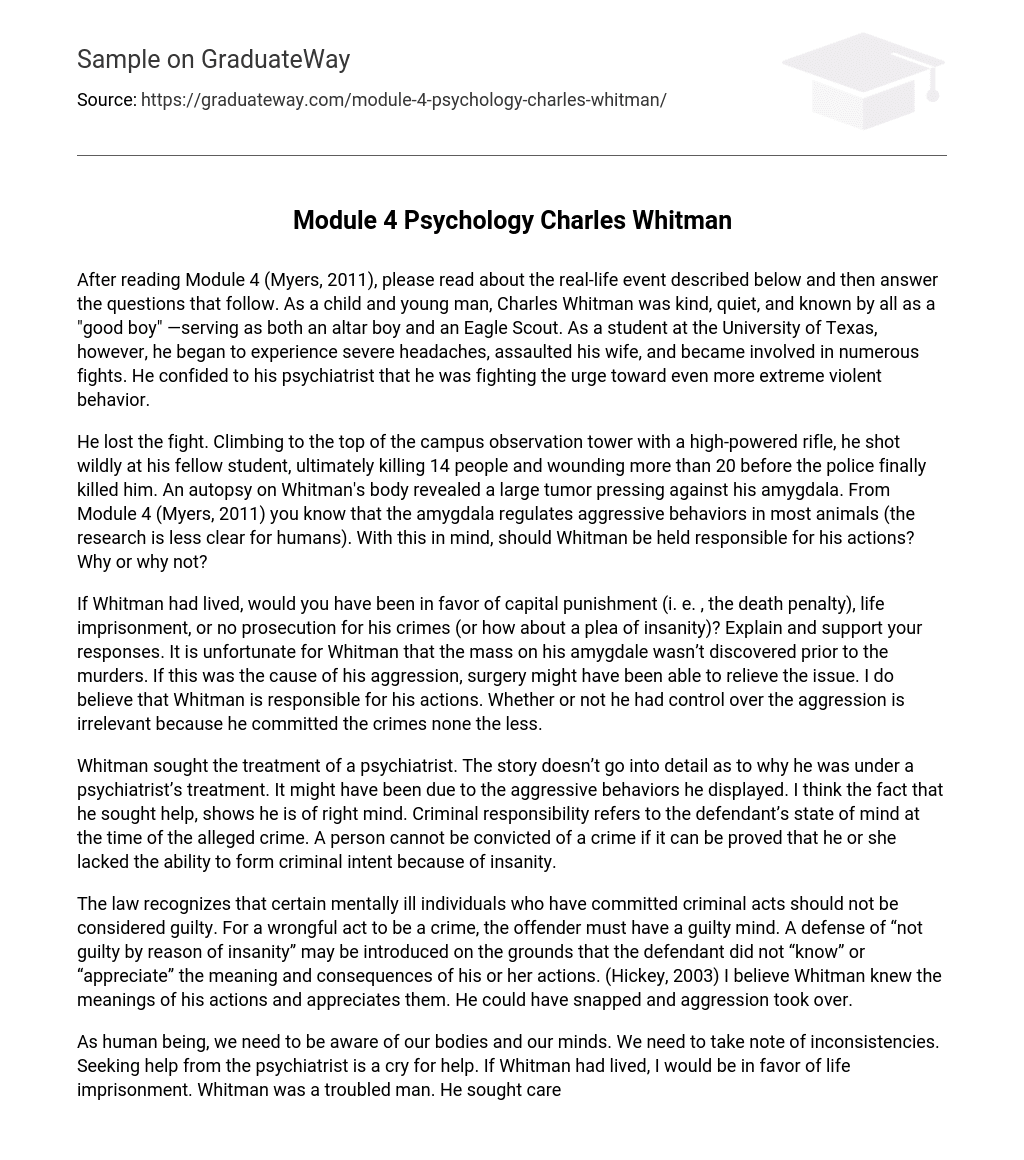After reading Module 4 (Myers, 2011), please read about the real-life event described below and then answer the questions that follow. As a child and young man, Charles Whitman was kind, quiet, and known by all as a “good boy” —serving as both an altar boy and an Eagle Scout. As a student at the University of Texas, however, he began to experience severe headaches, assaulted his wife, and became involved in numerous fights. He confided to his psychiatrist that he was fighting the urge toward even more extreme violent behavior.
He lost the fight. Climbing to the top of the campus observation tower with a high-powered rifle, he shot wildly at his fellow student, ultimately killing 14 people and wounding more than 20 before the police finally killed him. An autopsy on Whitman’s body revealed a large tumor pressing against his amygdala. From Module 4 (Myers, 2011) you know that the amygdala regulates aggressive behaviors in most animals (the research is less clear for humans). With this in mind, should Whitman be held responsible for his actions? Why or why not?
If Whitman had lived, would you have been in favor of capital punishment (i. e. , the death penalty), life imprisonment, or no prosecution for his crimes (or how about a plea of insanity)? Explain and support your responses. It is unfortunate for Whitman that the mass on his amygdale wasn’t discovered prior to the murders. If this was the cause of his aggression, surgery might have been able to relieve the issue. I do believe that Whitman is responsible for his actions. Whether or not he had control over the aggression is irrelevant because he committed the crimes none the less.
Whitman sought the treatment of a psychiatrist. The story doesn’t go into detail as to why he was under a psychiatrist’s treatment. It might have been due to the aggressive behaviors he displayed. I think the fact that he sought help, shows he is of right mind. Criminal responsibility refers to the defendant’s state of mind at the time of the alleged crime. A person cannot be convicted of a crime if it can be proved that he or she lacked the ability to form criminal intent because of insanity.
The law recognizes that certain mentally ill individuals who have committed criminal acts should not be considered guilty. For a wrongful act to be a crime, the offender must have a guilty mind. A defense of “not guilty by reason of insanity” may be introduced on the grounds that the defendant did not “know” or “appreciate” the meaning and consequences of his or her actions. (Hickey, 2003) I believe Whitman knew the meanings of his actions and appreciates them. He could have snapped and aggression took over.
As human being, we need to be aware of our bodies and our minds. We need to take note of inconsistencies. Seeking help from the psychiatrist is a cry for help. If Whitman had lived, I would be in favor of life imprisonment. Whitman was a troubled man. He sought care for his condition. The care did not work. References Myers, D. G. (2011). Exploring psychology in modules (8th ed. ). New York: Worth Publishers. Hickey, Eric W (2003). Encyclopedia of Murder and Violent Crime. California: Sage Publications, Inc.





